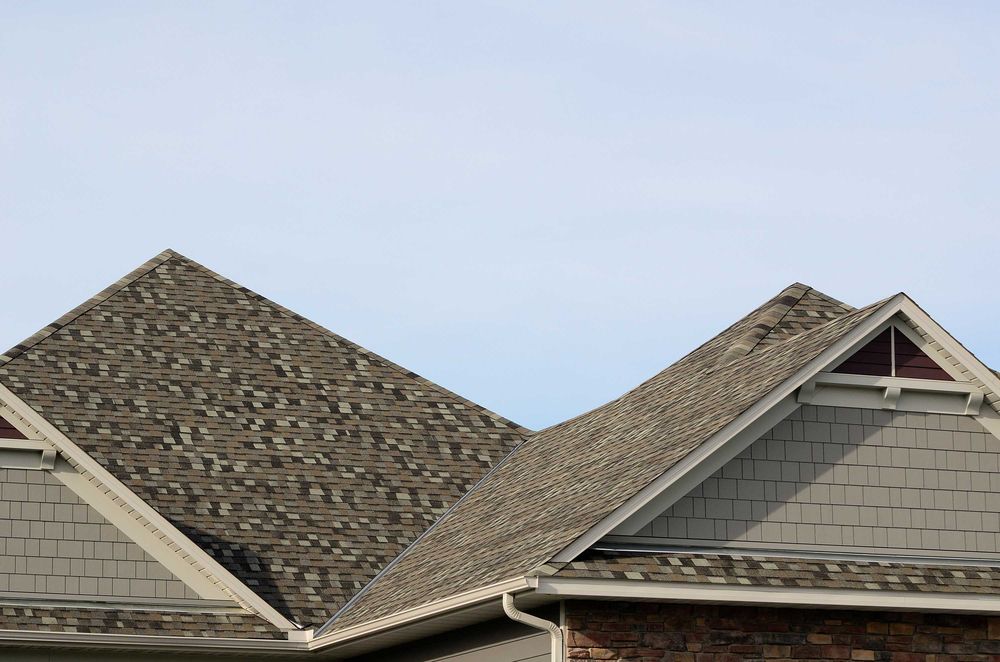10 FAQs About a New Roof in Prescott Valley

Thinking about a new roof can leave homeowners with numerous questions. It’s one of the most significant upgrades you can make to your home, and it’s essential to approach it with clarity and confidence. From understanding materials to timelines and costs, we’ve answered some of the top FAQs about a new roof. Whether you’re in Prescott Valley or the surrounding areas, these answers will help guide you when planning your roofing project.

Common Questions About a New Roof
1. How do I know if I need a new roof?
There are several signs to look out for when determining whether it’s time to replace your roof. Common indicators include missing, cracked, or curling shingles, leaks inside your home, damaged flashing, and sagging areas. If your roof is over 20 years old or experiencing extensive wear and tear, it’s worth consulting a professional roofing contractor to evaluate its condition.
2. What are the best materials for a new roof?
The choice of materials largely depends on your home’s location, budget, and personal preferences. Asphalt shingles are one of the most popular options due to their affordability and durability. Metal roofing offers longevity and energy efficiency, while tile roofing is known for its resistance to harsh weather conditions, especially in regions like Prescott Valley. Each material offers unique benefits, so it’s wise to discuss options with a roofing expert to identify the best fit for your home.
3. How much does a new roof cost?
The cost of a new roof varies depending on multiple factors like the size of your home, the materials used, the extent of labor involved, and local pricing standards. On average, homeowners can expect to spend between $5,000 and $15,000 for a new roof. Requesting a personalized quote from a trusted roofing company ensures you get an accurate estimate tailored to your situation.
4. How long does the installation process take?
The timeline for installing a new roof depends on factors such as the size of the roof, the weather, and the complexity of the project. A standard roof replacement typically takes one to three days. However, custom designs or additional repairs may extend the timeline. Your roofing contractor should provide you with a detailed project timeline before starting.
5. Does homeowners insurance cover a new roof?
Homeowners insurance may cover part or all of the cost of a new roof, but it largely depends on the circumstances. For instance, if your roof was damaged by a covered peril, such as hail or strong winds, you might be eligible for coverage. However, insurance typically won’t cover a new roof due to normal wear and tear. It’s recommended to review your policy details or consult your insurance provider for clarification.

6. What questions should I ask when considering a new roof?
When selecting a roofing contractor or planning your project, ask the following questions:
- What materials do you recommend for this area?
- Do you provide a written estimate and warranty for your work?
- Can you share references from previous clients?
These questions will help ensure you’re working with a trusted and capable contractor.
7. Can I install a new roof over my existing one?
While it is possible to overlay a new roof on top of an existing one, it’s generally not recommended. Installing a second layer can trap heat, hide underlying issues, and reduce the roof’s lifespan. A full roof replacement is usually the better option for long-term quality and performance.
8. How do I choose the right roofing contractor?
Finding a reliable contractor is critical to the success of your roofing project. Look for a contractor with strong local reviews, clear communication, proper licensing, and a proven track record. Be wary of companies offering prices that seem too good to be true, as quality materials and service come with fair and reasonable pricing.
9. What maintenance is required after getting a new roof?
Once you have your new roof installed, proper maintenance is essential to keep it in great condition. Regularly inspect your roof for damage, clean gutters to prevent blockages, and remove debris such as branches and leaves. Scheduling annual inspections with your roofing contractor can also help extend the roof’s lifespan.
10. How can I be sure my new roof will last?
The lifespan of your new roof depends on the materials you select, the quality of installation, and ongoing maintenance. For example, asphalt shingles typically last 20-30 years, while metal and tile roofs can last 50 years or more. Working with experienced professionals and choosing high-quality materials can significantly increase your roof’s durability.
Final Thoughts
Deciding to invest in a new roof is a major decision for homeowners. Whether you’re upgrading your current roof or replacing it due to damage, understanding the process and your options is vital for achieving the best results. If you’re in Prescott Valley or nearby, TSM Roofing is here to help. With expert guidance and premium materials, we’ll ensure your roofing project is completed with utmost care.
Contact TSM Roofing today for a free consultation and personalized quote. Your home deserves the best protection—our team is ready to get started.